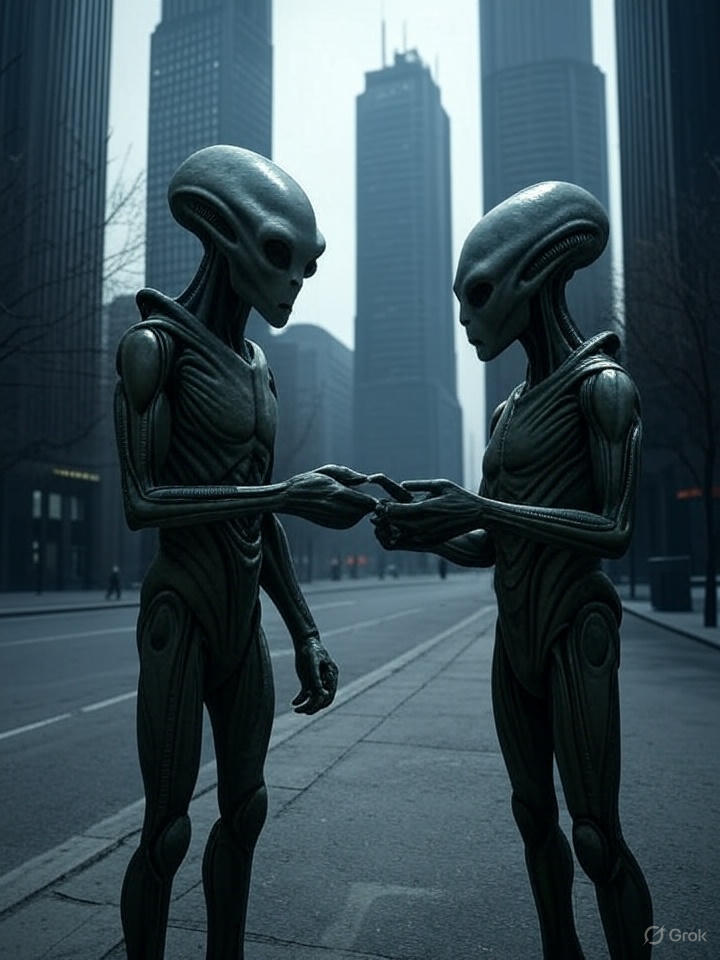Hell is described as the absence of God let’s look at this as a probability that there does exist a planet that is absent of Love, doesn’t this seem like Hell?
Imagine a planet we’ll call “Eridan,” orbiting a sun much like ours in a solar system eerily parallel to Earth’s—vast oceans lapping at continents teeming with forests, mountains, and deserts. The skies are blue on clear days, rivers carve through valleys, and seasons cycle with predictable rhythm. Life abounds: creatures roam in herds, birds slice through the air, and flora blooms in vibrant colors. But peel back the surface, and Eridan reveals a profound void—no love pulses through its inhabitants’ veins.
On Eridan, beings—bipedal and intelligent, akin to humans but with colder, more calculating eyes—interact solely through necessity and instinct. Reproduction is a mechanical transaction, driven by biological imperatives without tenderness or bonding. Offspring are reared in communal structures not out of affection, but as a pragmatic investment in species survival, like workers maintaining a hive. There are no families in the Earthly sense; no parent cradling a child with warmth, no siblings sharing secrets or loyalties. Alliances form and shatter based on utility—hunting packs dissolve the moment prey is scarce, with no regret or longing.
Social structures exist, but they’re brittle frameworks of power and exchange. Cities rise with architectural marvels, engineered for efficiency, yet streets echo with silence beyond barked commands. Art, if it can be called that, serves propaganda or instruction, devoid of the soul-stirring beauty born from passion. Music is absent; poetry, nonexistent. Conflicts erupt not from jealousy or heartbreak, but from resource scarcity, resolved with ruthless precision—no mercy, no forgiveness, for those require empathy’s spark.
Nature itself mirrors this emptiness. Predators hunt without the playful camaraderie seen in Earth’s wolf packs; prey flees in pure terror, unsoftened by any herd instinct beyond self-preservation. Flowers release scents to attract pollinators, but there’s no aesthetic appreciation—no one pauses to inhale a bloom’s fragrance with wonder. Seasons change, but without love, there’s no poetry in autumn leaves or joy in spring’s renewal; it’s all just environmental data to exploit.
In this world, the absence of love breeds a pervasive isolation, even amid crowds. Beings achieve great technological feats—space travel, perhaps—but driven by conquest, not curiosity or shared dreams. Suffering is endured alone; triumphs, if celebrated, are solitary boasts. It’s a planet of perpetual transaction, where every interaction tallies costs and benefits, leaving souls (if they exist) hollow.
This echoes the theological notion as mentioned: Hell as the absence of God, who is love. In many traditions, like Christianity’s depiction in works such as Dante’s Inferno or C.S. Lewis’s The Great Divorce, Hell isn’t just fire and brimstone but a state of eternal separation from divine love, cold, self-absorbed, and devoid of connection. Eridan could be a cosmic metaphor for that: a beautiful shell masking an existential void, where life’s machinery grinds on without the lubricant of affection, empathy, or transcendence. It makes one appreciate Earth’s “love gene” all the more, whether divinely implanted or evolutionarily honed. What aspect of this loveless world intrigues or horrifies you most? PS: We are made in God’s image — not like the attached picture.
